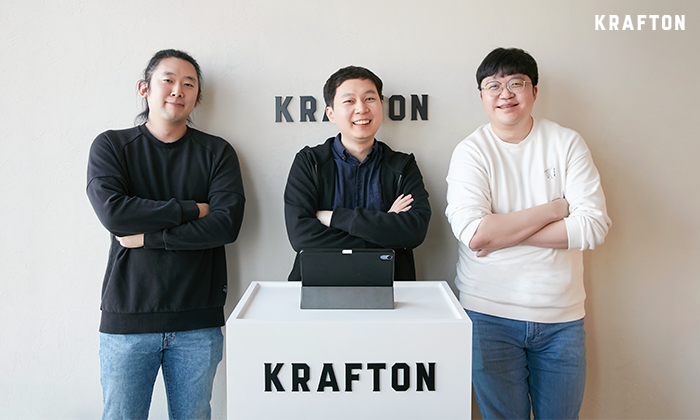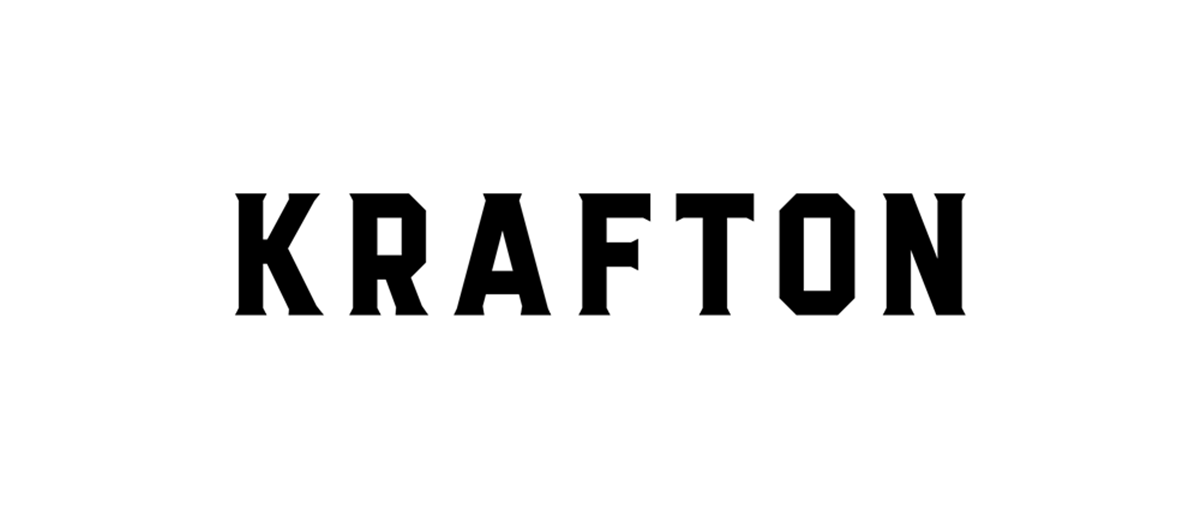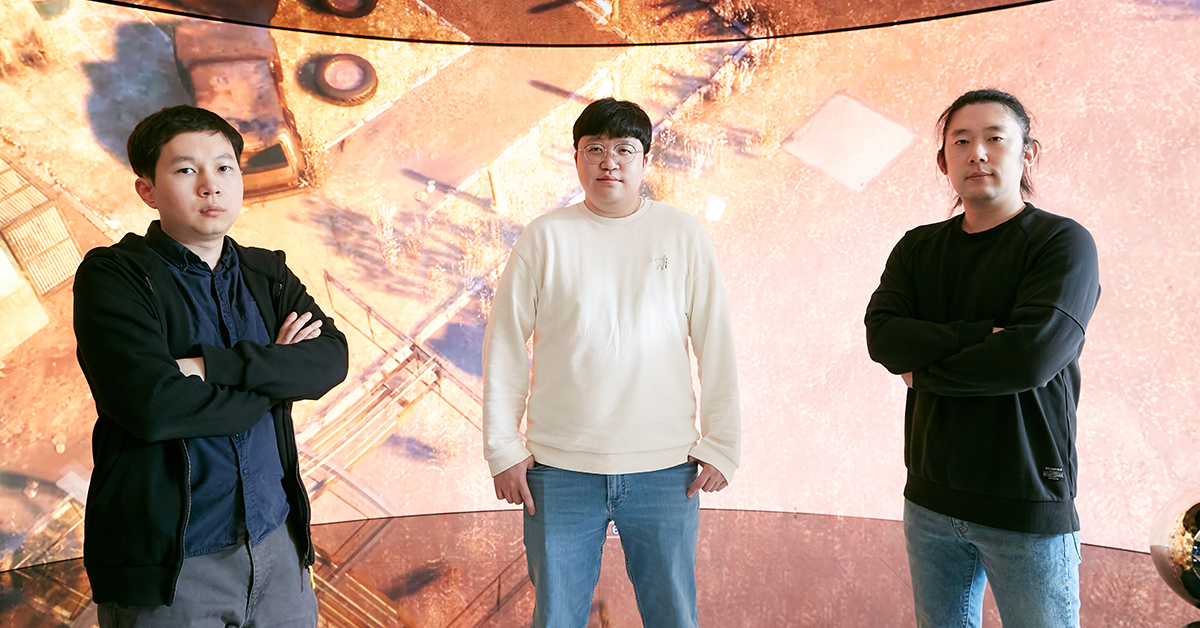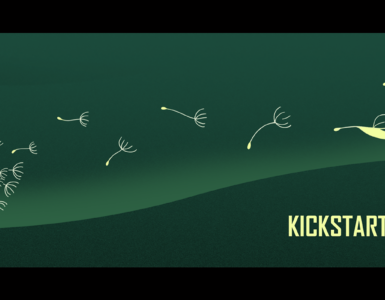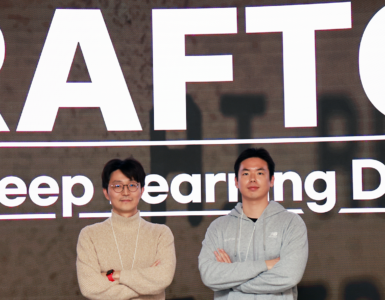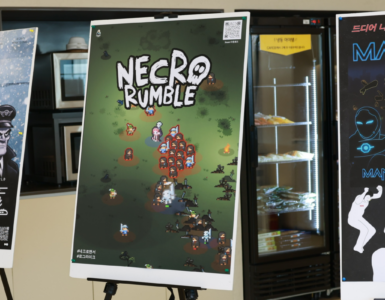If you want to know what your children think, you should consult with a child psychologist. If you want to know how your dog feels, you should ask a dog trainer. Then who should you ask when you want to learn about the gamers’ needs? KRAFTON’s “User & Game Analysis (UGA) Part” works on analyzing and researching the users for game developers. Read onto the following blogpost and check out how the UGA Part investigates the users’ minds.

Hi. Please introduce yourselves to our readers.
Jeonghwan Park (Park): My name is Jeonghwan Park of the UGA Part under Studio Management Division. As you may know from its name, my unit is dedicated for getting meaningful insights from user research and game analysis.
Yoenggi Son (Son): Hi, I’m Yoenggi Son. I research the latest trends of the game industry and analyze new games.
Dogyun Kim (Kim): My name is Dogyun Kim and I work on user analysis. I conduct various user tests for ongoing game development projects while helping them look into their games from a more objective point of view.
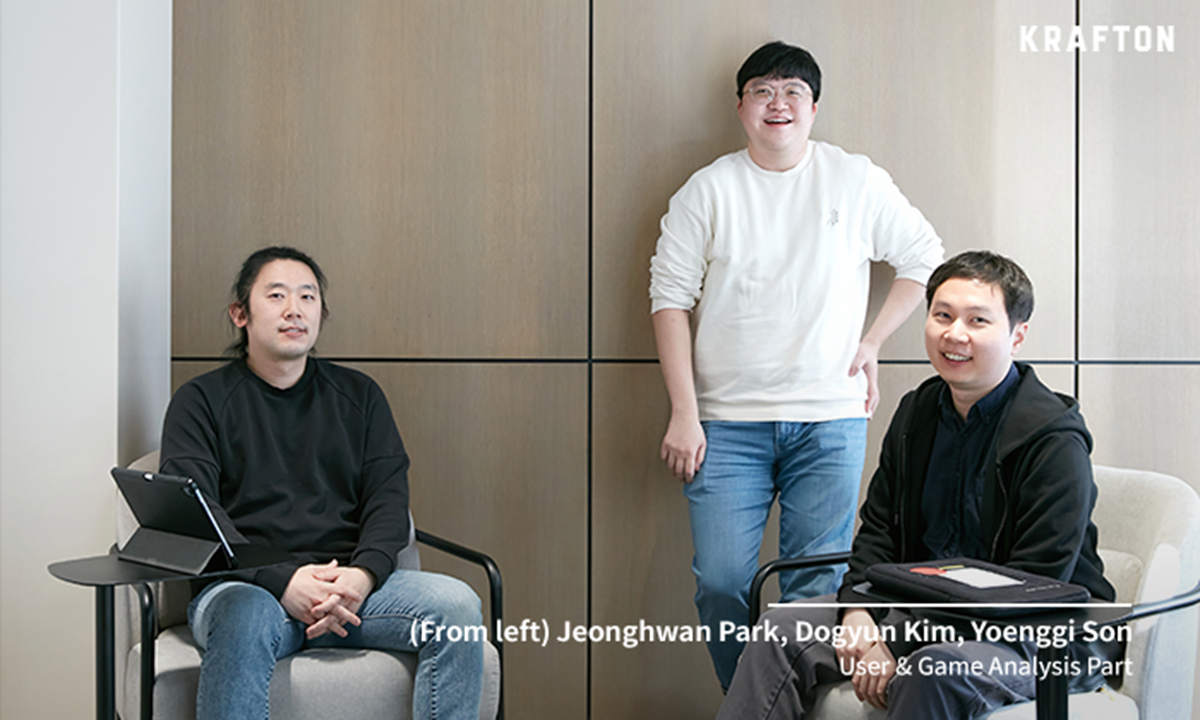
What kind of organization is the UGA Part?
Park: In plain language, the UGA Part tries to deeply understand and analyze “games” and “the users who play them.” We help dev teams resolve their questions that they might have while making games. And it’s our goal to make KRAFTON understand more about games and the users in the long term.
What made you to join KRAFTON’s UGA Part?
Park: The nature of games makes it impossible for us to figure out how much the users will enjoy a game and project the result before it is released. KRAFTON keeps on working on this matter no matter how hard it is, and this impressed me much. I felt that KRAFTON always think about the definition of fun games and the ways that we can keep on making such titles.
Son: The fact that this is a unique job that doesn’t exist in many other companies made me attracted to this position. It is very interesting to analyze the games I like. I also like my job for it is to provide our developers in need with the exact information they require, in a way that makes us very trustworthy.
Kim: Since I was young, I’ve always been curious of people around me and asked myself, “why does that person act in such a particular way?”. I admit I’m a geek to some extent. (Laughter) I realized I’m the person who are interested in people as I studied the cognitive psychology. I also liked games so that I wanted to know about people in games.

Could you elaborate on user research? How does it work?
Kim: We run user research such as Focus Group Tests (FGT) and Focus Group Interviews (FGI) for the games under development at KRAFTON, analyze the results and compile them as a database. If a project requires behavior pattern analysis on user satisfaction and interest, we conduct FGTs. For more specific emotions or qualitative reasons, we carry out FGIs.
Also, I work on other basic research projects of our own, which is to come up with a better way to conduct a survey. For example, we ask all new recruits of the company to fill in a document named “Gamer Profile.” It’s also my duty to make it a more elaborate data.
Tell me more about this Gamer Profile.
Kim: It is a kind of personal profile on favorite type of games and on the way how to enjoy them. When we plan for in-house user tests, we have to gather proper subjects. We collect the personal profile from all the employees and establish a database since we cannot look for them by making contacts to everyone each time.
Park: For instance, let’s suppose a dev team tries to make a “hwatu (flower cards)” game. They would want to gather people who frequently enjoy card games as testers. In this case we look up to our Gamer Profile database to look for those who have answered that they often enjoy such games. Of course, it’s just an example. Don’t get me wrong, I don’t mean that KRAFTON is making a hawtu game. (Laughter)
From what you’ve said, it seems that only research/statistics experts are eligible for the job.
Kim: Basic knowledge on qualitative/quantitative data analysis techniques are required. But we want people who know how to raise proper questions. For a joke, we those kind of people as “serial questioner.” The UGA Part consists of people who always wonder why, keep asking “Why do the users show such behaviors?” or “Why do people like this game?”
Do you mean the UGA Part looks for people who can lead the process, not just analyzing the results?
Kim: You’re right. Statistical methodologies are just theories, so you can learn them. But the attitude to seek for in-depth domain knowledge on specific fields or to stay curious of things is not what you can get in the short term. We are very serious about games. We constantly ask why. Those who have such an attitude would be a good match for the UGA Part.

The job opening says you’re looking for people who have purchased played through more than 200 titles.
Park: Yoenggi plays a lot of games and thus is very familiar with them. When we come up with a certain game while we talk, he starts to tell us about related titles or similar ones right off the reel. He can recall them like browsing through his own mind map. I want to hire people with a wide experience on games like him, but it’s not easy to quantify this. I asked him how many games he has played and realized that it would be impossible to find people who have played as much as he did. At the end of the day, I had to settle at around 200 titles. (Laughter)
Son: I’ve played over 200 games on Steam, but it’s hard to count if other platforms are included. In fact, the number is not the point here. We’re just looking for people who played much, to the level that he or she could he could come up with titles that can give us the lead to a solution.
You seem to play games very much. Do you have a favorite genre or title?
Park: Of course, we have personal tastes as a gamer. But I try not to be explicit about it. The nature of this job makes us avoid thinking that we know about certain genre very well. Our personal opinions must not be involved in the process to design user tests and to analyze the results. It’s very crucial to look into it as objectively as we can no matter how a certain game is our own taste.
Kim: There is a concept called “confirmation bias,” which means that one tends to search for only what one wants to see while information. Many developers get information that is related only to the game they’re making so that it’s easy for them to think of their game in the way they want. Therefore, we try not to be biased and help dev teams be more objective.
Then, is it possible for people who don’t enjoy games to work in this team?
Kim: It’s sort of a dilemma. If you don’t like games, you’ll be able to avoid being biased about it and stay in balance. But at the same time, it will be difficult for you to get meaningful insights in the process. For instance, people like me who have absolutely no interest in cosmetics cannot design a survey on cosmetics. If you’re working on a field that you have interest in, you’ll naturally come up with ideas about questions and then be able to develop research methods. No matter how good you are in researching and analyzing, it would not be able to even come up with proper questions.
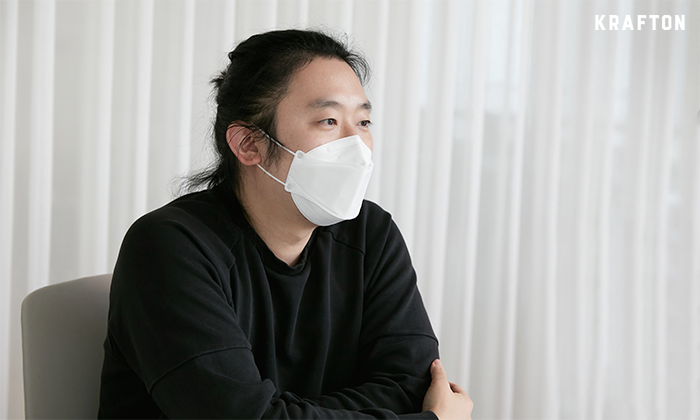
Is there anything part you feel extra cautious about when sharing the results with the dev teams?
Park: When something important comes out during tests, it usually is an unfavorable result for the dev team. Like the developers, we also are at a loss if we find out that the result is against the premise of fun that the dev team established. But the UGA Part only makes analysis and shares the result with the developers. We don’t suggest any alternatives or tell the developers what to do.
I think this is the biggest difference from the game tests usually seen in other large game publishers. We believe it’s entirely dev teams’ share that how to accept the information we provided through the tests and how to make a decision. Our role is just to organize and share the facts on the current state of the game and the users’ opinions.
You might have certain attitudes you keep in mind while working.
Park: It’s very important to objectify ourselves. Many people who like games would say “I play games very much” or “I know the game well.” But they may realize that was not so true once they join the game industry to work. You can always find people who are even more enthusiastic in any field. Therefore, it’s critical to acknowledge that there’s far much beyond our own experiences. We need to have an attitude to listen carefully to the users and analyze the market objectively.
You’re hiring now. What do you expect from your future teammates?
Park: I already told you that we all need to love games, constantly make questions and try to keep an objective perspective. Except for there, communication skill is important for both game analysis and user research sectors. The results that we draw from the tests are not meaningful by itself. They can only be valuable when they are used by developers who need them.
In the case of a game test, for instance, we don’t make any assessment on things created by the developers. But it’s possible for them to feel that the were assessed. Thus, it’s crucial to deliver the facts accurately, not to make any unnecessary misunderstanding or distortion of meanings in the process.
When you see the reviews on a food delivery app, you’ll be able to find some people who make very offensive comments and others who clearly states what they want but not in an insulting way. The purpose of those reviews is to talk about the quality of food objectively and help the shop owners to make recipes better. What we try to do at the UGA Part is like this. So, we want a person who don’t make others misunderstand. Well, I guess everyone would want that type of people. (Laughter)
Lastly, what’s the team’s goal or future that three of you dream of?
Park: I want to continue helping the dev teams like I do now. I’ll also try to help KRAFTON accumulate better understanding on games and the users.
Kim: I personally hope to expand the database by gathering more people from inside and outside KRAFTON. I’ll be able to provide better insights if I have a wider database.
Son: I want the UGA Part to be more reliable for the members of KRAFTON.
